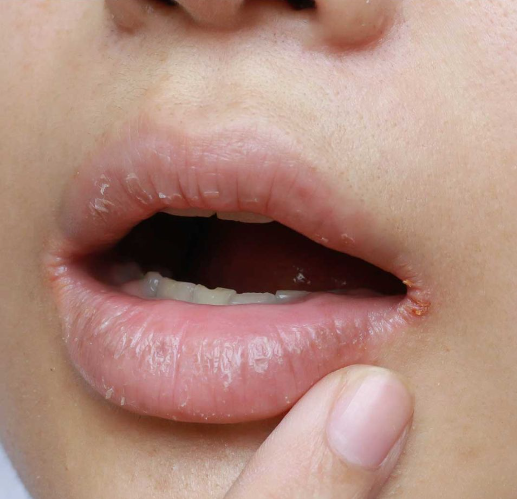Vitamin B6, also known as pyridoxine, is a vital nutrient that your body needs to function properly. It plays a significant role in metabolism, brain health, and immune system support. Yet, vitamin B6 deficiency is more common than you might think, often going unnoticed until symptoms become severe. The consequences of low vitamin B6 can be serious, affecting everything from your mood to your skin health.
Why Is Vitamin B6 Important for Your Health?

Vitamin B6 is crucial for several key bodily functions:
- Brain Development: It aids in the production of neurotransmitters, which are essential for regulating mood and cognitive function.
- Metabolism: It helps the body break down proteins, fats, and carbohydrates, converting them into energy.
- Immune System Regulation: It supports the production of lymphocytes, cells that help protect the body from infections.
Despite its importance, many people fail to get enough vitamin B6 through their diet, leading to various health issues. Let’s delve into the specific signs that may indicate a vitamin B6 deficiency.
1. Unusual Skin Rashes
One of the most visible signs of vitamin B6 deficiency is skin issues, particularly seborrheic dermatitis. This condition results in red, itchy rashes, often appearing on the face, scalp, or neck. The rashes may have a greasy or scaly texture, and they can persist despite regular skin care routines.
- Why It Happens: Vitamin B6 supports the production of collagen, which keeps your skin healthy. A deficiency can disrupt this process, leading to skin problems.
- How to Spot It: Look for red, inflamed patches that don’t respond well to typical creams or lotions.
If you’ve noticed persistent skin issues, it might be time to evaluate your vitamin B6 intake.
2. Cracked and Sore Lips
Another common sign of vitamin B6 deficiency is angular cheilitis, a condition characterized by cracked, swollen, or sore corners of the mouth. This can make eating, drinking, and even smiling uncomfortable.
- Why It Happens: Vitamin B6 plays a role in maintaining skin health, including the sensitive skin around your lips.
- How to Spot It: Pay attention to sores that develop at the corners of your mouth, especially if they are slow to heal.

If you’re constantly dealing with sore lips, increasing your vitamin B6 intake might offer relief.
3. Mood Changes and Mental Health Issues
Vitamin B6 is closely linked to the production of serotonin and dopamine, neurotransmitters that regulate mood. When you’re low on vitamin B6, your body may struggle to maintain stable levels of these chemicals, leading to mood swings, irritability, anxiety, and even depression.
- Why It Happens: Without enough vitamin B6, the production of mood-stabilizing neurotransmitters is compromised, affecting mental health.
- How to Spot It: Noticeable mood changes, irritability, or persistent feelings of anxiety or sadness may indicate a deficiency.
If you’re experiencing sudden mood changes, consider consulting with a healthcare provider to check your vitamin B6 levels.
4. Fatigue and Low Energy

Feeling tired all the time? Vitamin B6 could be the culprit. This vitamin helps your body produce hemoglobin, the protein in red blood cells that carries oxygen throughout your body. Low hemoglobin levels can lead to fatigue and weakness, even after a good night’s sleep.
- Why It Happens: A deficiency in vitamin B6 impairs hemoglobin production, reducing oxygen transport in the blood.
- How to Spot It: Persistent fatigue, low energy, or weakness without a clear cause.
If you’re feeling drained despite getting enough rest, you might need to up your vitamin B6 intake.
5. Cognitive Issues and Memory Problems
Vitamin B6 is essential for brain health and cognitive function. A deficiency can contribute to confusion, difficulty concentrating, and memory issues.
- Why It Happens: Vitamin B6 supports neurotransmitter synthesis, which affects how well your brain processes information.
- How to Spot It: Difficulty remembering simple details, confusion, or trouble concentrating.
If you find yourself struggling with focus, vitamin B6 might be a factor to consider.
6. Weakened Immune System

If you’re frequently getting sick, a lack of vitamin B6 might be to blame. This vitamin plays a vital role in regulating the immune system by promoting the production of white blood cells that fight off infections.
- Why It Happens: Without enough vitamin B6, your body produces fewer lymphocytes, weakening your immune defenses.
- How to Spot It: Increased susceptibility to colds, infections, or slower wound healing.
A stronger immune system starts with a diet rich in vitamin B6, helping your body ward off illnesses more effectively.
7. Tingling and Numbness in Hands and Feet
Low levels of vitamin B6 can cause nerve damage, leading to tingling, numbness, or a “pins-and-needles” sensation in the hands and feet. This condition is known as peripheral neuropathy and can become severe if left untreated.
- Why It Happens: Vitamin B6 is crucial for nerve function, and a deficiency can disrupt nerve signaling.
- How to Spot It: Persistent tingling, numbness, or burning sensations in your extremities.
If you’re experiencing these symptoms, it’s essential to address your vitamin B6 levels to prevent further nerve damage.
How to Boost Your Vitamin B6 Levels

If you’ve noticed any of these symptoms, you might want to consider adjusting your diet or taking supplements to increase your vitamin B6 intake. Some vitamin B6-rich foods include:
- Chicken and Turkey: Excellent sources of lean protein and vitamin B6.
- Bananas: An easy snack that provides a quick boost of vitamin B6.
- Potatoes: Packed with vitamin B6, particularly when eaten with the skin on.
- Spinach and Other Leafy Greens: Provide a plant-based source of this essential vitamin.
Supplements can also be an option, but consult with a healthcare provider to determine the right dosage for your needs.
Conclusion: Recognize the Signs and Take Action
Vitamin B6 is vital for your overall health, affecting everything from skin condition and mood to energy levels and immune function. If you’re experiencing any of the signs mentioned above, it’s important to pay attention and consider increasing your vitamin B6 intake through dietary changes or supplements. Early intervention can prevent more serious health problems down the road, so don’t ignore the warning signs.
Take charge of your health by monitoring your vitamin B6 levels, and you’ll be on your way to a healthier, more energetic life.



